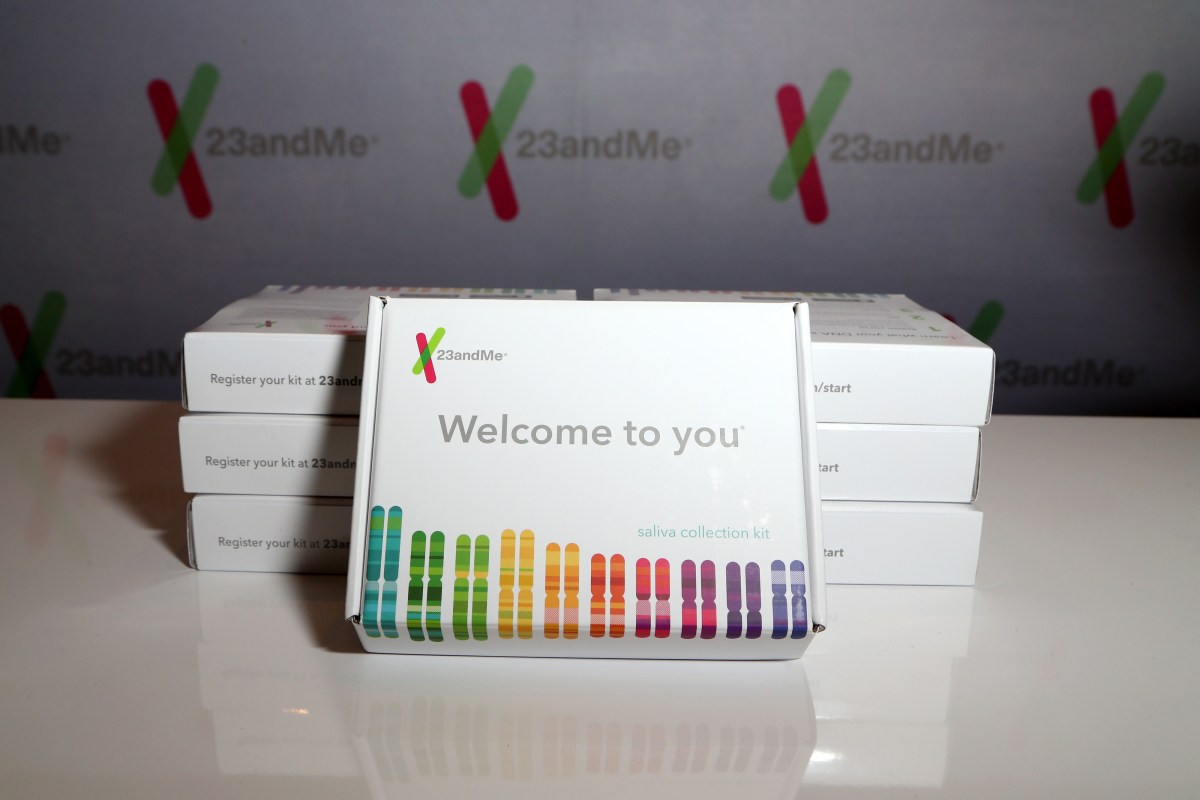Hope this isn’t a repeated submission. Funny how they’re trying to deflect blame after they tried to change the EULA post breach.
I mean if you use the same weak password on all websites, even a strong password, it is your fault in a legitimate way. Not your fault for the fact it was leaked or found out or the company having shit security practices, but your fault for not having due diligence given the current state of online security best practices.
Not your fault if you did have a strong password but your data was leaked through the sharing anyways…
I’m just of the general opinion that any personal data you entrust to any corporation is going to be at risk - regardless of it’s assurances. There’s also a risk of that corporation being legitimately acquired by another thus nullifying previous TOS, etc. Or worse case, they sell all your info anyway. Connected technology is moving quickly. What might seem safe to share today could become the basis of an insurance claim denial when they discover a genetic predisposition they believe you were obligated to disclose.
Lmfao what? I can’t wait to watch this play out…
23andMe admitted that hackers had stolen the genetic and ancestry data of 6.9 million users
I’m honestly asking what the impact to the users is from this breach. Wasn’t 23andMe already free to selling or distribute this data to anybody they wanted to, without notifying the users?
I would guess (hope?) that the data sets they sell are somewhat anonymized, like listing people by an i.d. number instead of the person’s name, and not including contact information like home address and telephone number. If so then the datasets sold to companies don’t contain the personal information that hackers got in this security breach.
That’s not how this works. They are running internationally, and GDPR would hit them like a brick if they did that.
I would assume they had some deals with law enforcement to transmit data one narrow circumstances.
I’m honestly asking what the impact to the users is from this breach.
Well if you signed up there and did an ancestry inquiry, those hackers can now without a doubt link you to your ancestry. They might be able to doxx famous people and in the wrong hands this could lead to stalking, and even more dangerous situations. Basically everyone who is signed up there has lost their privacy and has their sensitive data at the mercy of a criminal.
This is different. This is a breach and if you have a company taking care of such sensitive data, it’s your job to do the best you can to protect it. If they really do blame this on the users, they are in for a class action and hefty fine from the EU, especially now that they’ve established even more guidelines towards companies regarding the maintenance of sensitive data. This will hurt on some regard.
If they really do blame this on the users
It’s not that they said:
It’s your fault your data leaked
What they said was (paraphrasing):
A list of compromised emails/passwords from another site leaked, and people found some of those worked on 23andme. If a DNA relative that you volunteered to share information with was one of those people, then the info you volunteered to share was compromised to a 3rd party.
Which, honestly?
Completely valid. The only way to stop this would be for 23andme to monitor these “hack lists” and notify any email that also has an account on their website.
Side note:
Any tech company can provide info if asked by the police. The good ones require a warrant first, but as data owners they can provide it without a warrant.
The only way to stop this would be for 23andme to monitor these “hack lists”
Unfortunately, from the information that I’ve seen, the hack lists didn’t have these credentials. HIBP is the most popular one and it’s claimed that the database used for these wasn’t posted publicly but was instead sold on the dark web. I’m sure there’s some overlap with previous lists if people used the same passwords but the specific dataset in this case wasn’t made public like others.
That’s not 23 and me fault at all then. Basically boils down to password reuse. All i would say is they should have provided 2fa if they didn’t.
All i would say is they should have provided 2fa if they didn’t.
At this point, every company not using 2FA is at fault for data hacks. Most people using the internet have logins to 100’s of sites. Knowing where to do to change all your passwords is nearly impossible for a seasoned internet user.
The sad thing is you have to balance the costs of requiring your customer to use 2FA with the risk of losing business because of it and the risk of losing reputation because your customers got hacked and suffered loss.
The sad thing is some (actuall most) people are brain dead, you will lose business if you make them use a complicated password or MFA and it puts them in the position to make a hard call.
They took the easy route and gave the customer the option to use MfA if they wished and unfortunately a lot of people declined. Those people should not have the ability to claim damages (or vote, for that matter)
I feel like that argument could be made for some things, but inherently cannot apply to companies involved in personal, genetic, or financial information.
A seasoned internet user has a password manager.
Not using one is your negligence, no one else’s.
One password to break them all, and in the dark web bind them.
I’m honestly asking what the impact to the users is from this breach.
The stolen info was used to databases of people with jewish ancestry that were sold on the dark web. I think there was a list of similar DB of people with chinese ancestry. 23andme’s poor security practices have directly helped violent white supremecists find targets.
If you’re so incompetent that you can’t stop white supremecists from getting identifiable information about people from minorities, there is a compelling public interest for your company to be shut down.
That is a whoooolllee lot of assumptions
Why do you think someone would buy illegally obtained lists of people with Jewish or Chinese ancestry? And who do you think would be buying it?
deleted by creator
Scammers, that opens up a lot of scam potential.
Hi, I’m your new cousin.
Scammers would buy all info, not specifically targeted to people of Jewish or Chinese descent. That’s not what’s being sold.
Who do you think would want only information about people with Jewish or Chinese ancestry, and why?
OK you’re gonna have to give me a link to what you’re talking about. It feels like you are being specific, and I am being generic.
It’s the same incident, the OP article just didn’t mention it.
I wonder if they can identify a genetic predisposition that these patients had that made them more prone to compromising their passwords? And then if so, was it REALLY their fault?
Should probably ask OP!
They seems to be in the same boat based on this submission…
It’s proper etiquette to use the wording from the title when posting an article. OP did everything right.
This video comes to mind. https://youtu.be/ESzxGYDkwG8?feature=shared
Here is an alternative Piped link(s):
https://piped.video/ESzxGYDkwG8?feature=shared
Piped is a privacy-respecting open-source alternative frontend to YouTube.
I’m open-source; check me out at GitHub.
I mean, it is kinda their fault in the first place for using an optional corporate service that stores very private data of yours which could be used in malicious ways.
Maybe there should be some type of regulation that prevents that from happening considering the average person doesn’t think of shit like that because they don’t expect to be fucked over in every conceivable way
No, we know where we are getting fucked from: behind usually, sometimes ontop so they can choke us, and the rest is always on our knees.
If only Congress was literate on the issue.
If only companies could be executed.
Did you know they used to not be immortal by default? Like old companies had to definite like a shutdown date in their articles of incorporation.
Now they have human rights, are immortal, and use the planet like its a computer and they are a poorly written piece of malware.
Hint: Its gonna keep looping till it overheats and crashes. Might need to unplug it and plug it back in again.
deleted by creator
That is not at all what they said.
It’s actually the user’s fault. The emails and passwords came from a different breach, and some of those also worked on 23andMe. This is why you don’t reuse passwords.
It’s actually the user’s fault. The emails and passwords came from a different breach
No, 23andme is very clearly at fault.
Only 0.02% of those who had their personal info leaked were hacked by a credential stuffing attack.
99.8% of victims were victims because the company launched an obviously unsafe feature that allowed intruders to acces 500 other people’s details for each compromised account.
No one changes the password on sites they don’t use anymore and this is basically a single use service.
deleted by creator
Bro just don’t have DNA.
Too late man…
If you were really on your sigma grindset, your DNA would have never existed.
More of a gamma grindset since if you get hit by enough of those rays, you might not have recognizable DNA anymore.
…this checks out. Gamma grindset origin story.
Well, they have a point.
OP spreading disinformation.
Users used bad passwords. Their accounts where accessed using their legitimate, bad, passwords.
Users cry about the consequences of their bad passwords.
Yeah, 23AndMe has some culpability here, but the lions share is still in the users themselves
The lions share IMHO is at 23&me. Offering such a poorly secured service is negligence, in the face of the data’s high sensitivity nature.
From these 14,000 initial victims, however, the hackers were able to then access the personal data of the other 6.9 million million victims because they had opted-in to 23andMe’s DNA Relatives feature.
How exactly are these 6.9M users at fault? They opted in to a feature of the platform that had nothing to do with their passwords.
On top of that, the company should have enforced strong passwords and forced 2FA for all accounts. What they’re doing is victim blaming.
users knowingly opted into a feature that had a clear privacy risk.
Strong passwords often aren’t at issue, password re-use is. If un-{salted, hashed} passwords were compromised in a previous breach, then it doesn’t matter how strong those passwords are.
Every user who was compromised:
- Put their DNA profile online
- Opted to share their information in some way
A further subset of users failed to use a unique and strong password.
A 2FA token (think Matrix) might have helped here, other than that, individuals need to take a greater responsibility for personal privacy. This isn’t an essential service like water, banking, electricity etc. This is a place to upload your DNA profile…
As I said elsewhere, the company implemented this feature and apparently did not do absolutely jack about the increased risk of account compromise deriving from it. If I would sit in a meeting discussing this feature I would immediately say that accounts which share data with others are way too sensitive and at least these should have 2fa enforced. If you don’t want it, you don’t share data. Probably the company does not have a good security culture and this was not done.
users knowingly opted into a feature that had a clear privacy risk.
Your aunt who still insists she’s part Cherokee is not as capable of understanding data security risks as the IT department of the multi-million dollar that offered the ludicrously stupid feature in the first place.
People use these sites once right? Who’s changing their password on a site they don’t log into anymore? Given that credential stuffing was inevitable and foreseeable, the feature is obviously a massive risk that shouldn’t have been launched.
Users used bad passwords. Their accounts where accessed using their legitimate, bad, passwords.
Just as an anecdotal counterpoint, I am a 23andMe customer who did receive notification of my account was accessed and personal information obtained.
This was my password at the time: 7Kk5bXjIdfB25
That password was auto-generated for me by the BitWarden app.
So for what it’s worth I don’t think my password was a ‘bad’ password.
Your direct account was accessed or some of your information was access through a compromised account? those are big differences and from what I’ve read only the latter should have been possible. and in my opinion, not such a big deal.
How am I spreading disinformation? I just contributed an article I found interesting for discussion.
It’s worth noting that OP simply used the article title.
The article title is a little biased, individuals must take greater personal responsibility.
I don’t know title etiquette in this forum. I used the author’s title because it is their article, not mine, and thus their opinion/research/AI output.
Oh no, I was just pointing it out for others. I think using the title post is perfectly reasonable.
Thank you for posting, I found it interesting.
Yeah, 23AndMe has some culpability here, but the lions share is still in the users themselves
Tell me you didn’t read the article without telling me.
If 14,000 users who didn’t change a password on a single use website they probably only ever logged into twice gives you 6.9 million user’s personal info, that’s the company’s fault.
You didn’t read it either. They gained access to shared information between the accounts because both accounts had enabled “share my info with my relatives” option.
Logging into someones Facebook and seeing their friends and all the stuff they posted as “friends only” and their private DM discussions isn’t a hack or a vulnerability, it’s how the website works.
Laughing a feature that lets an inevitable attack access 500 other people’s info for every comprimised account is a glaring security failure.
Accounting for foreseeable risks to users’ data is the company’s responsibility and they launched a feature that made a massive breach inevitable. It’s not the users’ fault for opting in to a feature that obviously should never have been launched.
It doesn’t matter. It is a known attack and the company should have implemented measures against it.
At the very least, they should have made a threat modeling exercise and concluded that with this sharing feature, the compromise of a single account can lead to compromise of data for other users. One possible conclusion is that users who shared data should be forced to have 2fa.
It doesn’t matter. It is a known attack and the company should have implemented measures against it.
At the very least, they should have made a threat modeling exercise and concluded that with this sharing feature, the compromise of a single account can lead to compromise of data for other users. One possible conclusion is that users who shared data should be forced to have 2fa.
deleted by creator
Are you telling me a password of 23AndMe! Is bad? It meets all the requirements.
If you are dumb enough to send your DNA to a company that keeps it in a database forever, and often shares it with governments to make relationship maps and population control, you deserve everything.
Victim blaming is so fun, isn’t it? Do you feel big and strong?
Well, when somebody drives drunk and kills themselves, I will also say that they brought it on themselves. Play stupid games, win stupid prizes.
You’re a fucking buffoon. Driving drunk is absolutely different. Grow up.
This is at least partly true. If you reuse the same information, you should expect to get pwned
It is, it’s their fault for sending their data to some company that wants your DNA. I’m curious too, but i’m not that dumb.
Victim blaming is so cool!
ya’ll are projecting a whole lot onto what i said here… go right ahead, i know that you will never see things any way but your own. Have a nice day.
You’re literally blaming the victims and calling them dumb, how am I projecting?


















